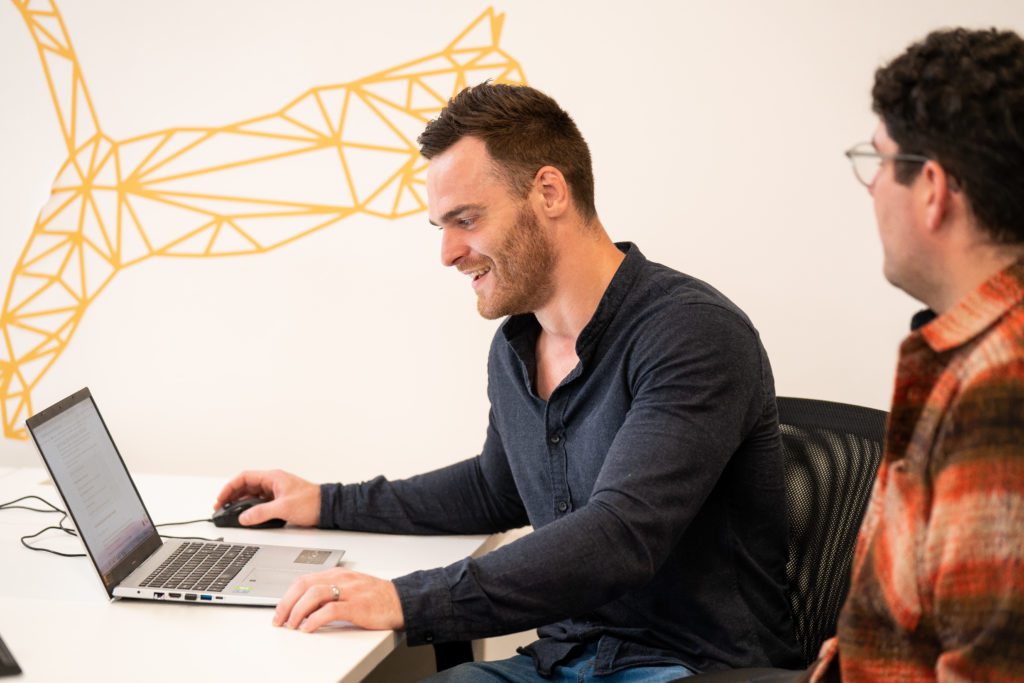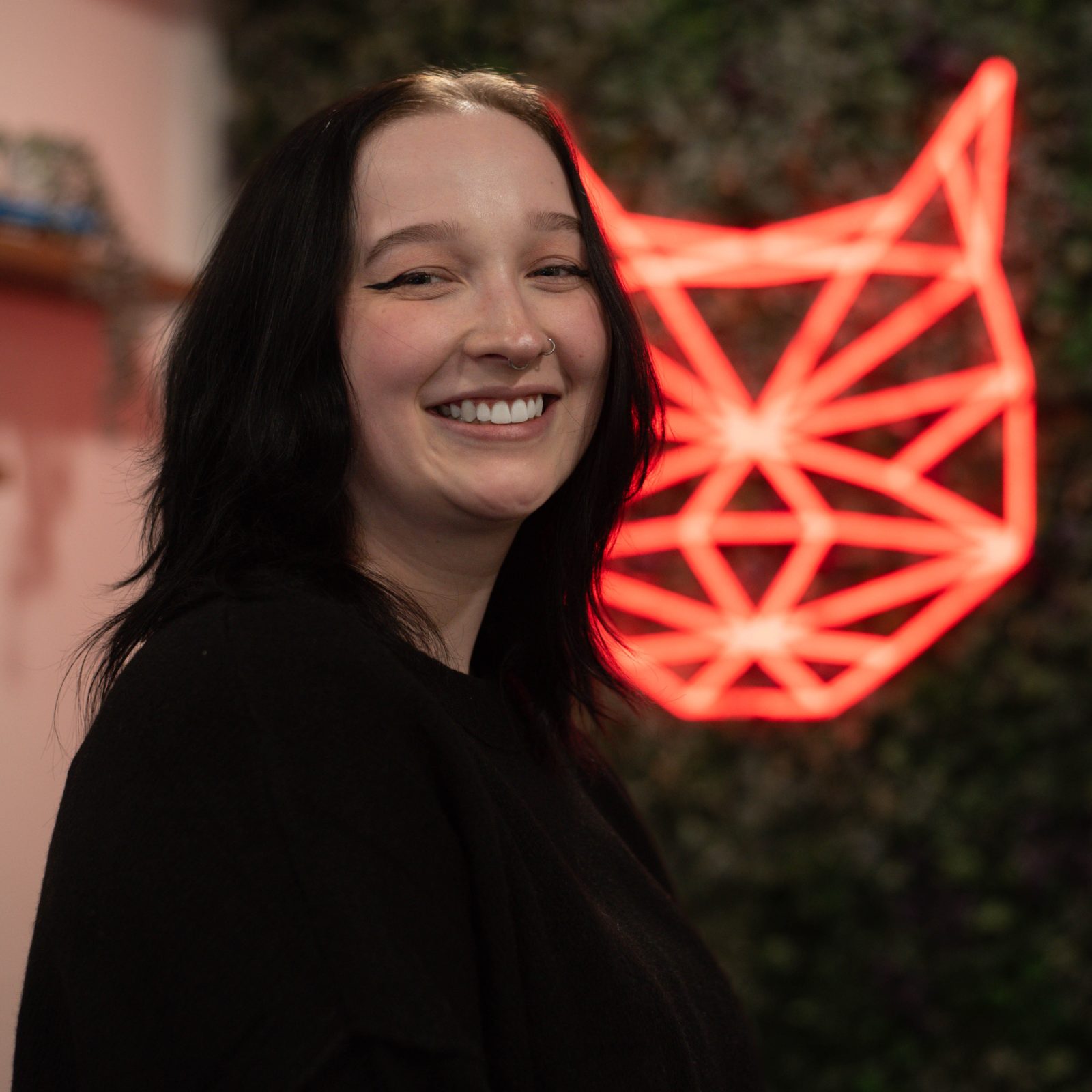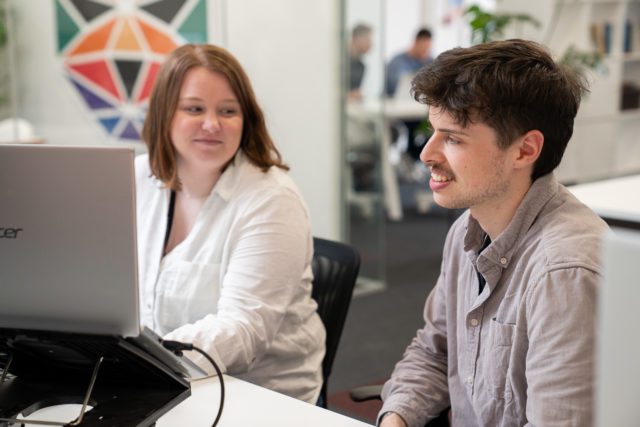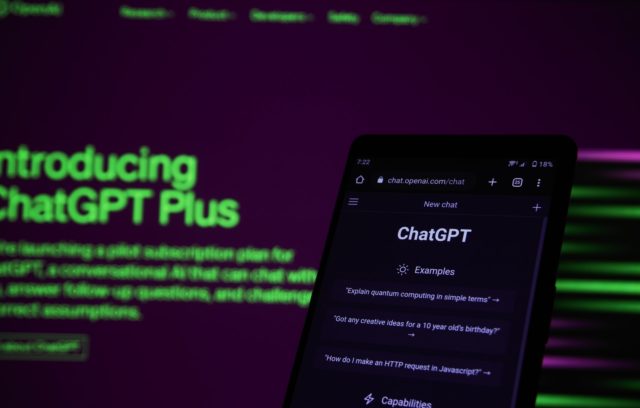If you are reading this blog, your organic traffic has most likely dropped and you are trying to identify the reason why. The battle for an impactful online presence is becoming increasingly more competitive. When it comes to SEO, there are so many factors that can affect your organic traffic so, sometimes, it can be useful to enlist the help of industry experts. So, let’s look at why your organic traffic may have dropped.
Some of the main reasons why your organic traffic may have dropped include: drops in keyword rankings, broken links, algorithm changes, page speed issues, changes in trends/search volume, navigational issues, no-index tags, google penalty, cannibalisation, weak AI content or outdated content.
Keep reading to learn more about the top 12 reasons why your organic traffic may have dropped for your website from an award winning SEO agency.

Organic traffic is the amount of visitors that land on your website from a search engine. They are usually only recorded when they have been on your website for 10 seconds or longer, or had 1 or more conversion. However, identifying why this metric may have dropped can be quite difficult. To make things easier for you, our team of SEO experts have put together an extensive blog on reasons why your organic traffic may have declined.
To help a website draw in organic traffic, content on keypages should be well-optimised for relevant keywords. It is quite common for keyword rankings to fluctuate over time due to a variety of reasons including increases in keyword difficulty, changes in keyword intent, or content not being informative or useful enough for the user. Losing a a high volume keyword ranking can contribute to a loss in organic traffic so it is important to monitor the performance of your keywords regularly and adjust your content accordingly.
For more information on how to track your keyword rankings and monitoring these issues, take a read of our informative blog that gives helpful tips.
Another reason why your organic traffic may have dropped is if you have lost backlinks that your website previously had. Backlinks are an important factor in SEO because they help to improve your website domain authority. They do this by proving to Google that your content is useful and informative enough that other sites are choosing to link to it.
What’s more, backlinks also help to send referral traffic to your website. Therefore, if you begin to lose backlinks, this tells Google that your content is either not informative enough or other sites are just providing better content for the search terms.
Auditing your backlink profile is a great way of understanding why your organic traffic has dropped. To learn more about the importance of backlinks including how to build them, click here.
If you have been making structural changes to your website, migrated to a new server or even launched a completely new one, it is possible that some of your redirects may have broken. Having broken redirects can be a contributing factor to your drop in organic traffic. It is important to remember when completing redirects that your XML sitemap is updated, as well as canonical tags and links are updated.
By not fixing the broken redirects users will end up on 404 error pages which is not a good user experience. As a result, users will leave your website and search engines will not crawl the URL, hence the drop in organic traffic.
Google algorithm changes are also a reason why organic traffic can be impacted negatively. Throughout the year, Google completes many minor updates as well as a few core updates which refines the way that websites are assessed for SEO factors. It is very common for website’s to experience traffic volatility during these periods and even after they are complete.
We advise you to complete competitor reviews after the updates are complete to assess what competitors are doing differently to you in order to rank higher and gain more organic traffic. This could help you to identify how content is written better, how the architecture of the site flows better or even simply how they have more backlinks than your website.
Issues with page speed can also impact the organic traffic reaching your website. This is because when a page takes too long to load, users simply click off your website and go elsewhere. This shows Google that your website is not providing a good user experience. This results in your being ranked lower, and receiving less organic traffic. Common issues that affect spite speed include large images sizes, excessive use of javascript and CSS compression issues.
To learn more about how to improve your site speed, take a read through our recent blog on the topic by clicking here.
A further reason why your organic traffic may have dropped could be due to navigational issues on your website. It is advised to have a simple navigational structure that helps users find what they need in as little clicks as possible. When content is buried too deep in your website’s navigation, not only will users struggle to find it but Google is also less likely to crawl it. Both of which result in less organic traffic; users don’t find what they need so they leave your site, and google doesn’t rank the page so people cannot find it anyway.
As you are actively adding more content to your website, it is a good idea to review your website navigation regularly. It is important to consider factors such as:

You may notice a drop in traffic in relation to changes in volume or intent of keywords you have targeted on your website. It is quite normal for keywords to vary in volume at different periods of the year, especially when there are trends for certain services and products. If the trend drops for your niche, it is possible that keyword volume will drop too which means that less traffic will be drawn to your website.
Similarly, you may also notice a drop in traffic if the intent of your keywords change. For example, the keyword you targeted on your page may have originally had a transactional intent, whereby users searching for it are looking to purchase a product. However, over time users may begin looking for information (informational intent) on how to use the product when they search the keyword. This will eventually result in you dropping in rankings for the keyword and losing traffic.
For more information on how to track your keyword performance and identify any of these issues. Take a read of our informative blog by clicking here.
A no-index tag is a page directive that is added to the code of your website to tell search engines such as Google not to index it. Having a no-index tag stops Google from crawling your page or website therefore you would get no traffic. It is important to note that no-index tags don’t have to be applied across the whole site, they can just be applied to individual pages. This can still result in drops in traffic, especially if those pages are your high volume ones.
To learn more about the importance of crawling and indexing for SEO, take a read of our recent blog by clicking here.
Keyword cannibalisation can occur on your website when more than one page is ranking for or targeting the same keyword. By doing so, this negatively affects each keyword rankings because they are competing against each other. It makes it difficult for the search engine to determine which page is most relevant, especially if they are very similar.
However, it is possible to target one keyword on multiple pages if the keyword has multiple intentions. For example, the keyword ‘Local SEO Agency’ is both transactional and informational. This means it would be appropriate to target it on a homepage and an information service page.
If you are interested in discovering more about best practices for keywords, be sure to take a look at our informative blog by clicking here.
Another reason you may notice drops in your organic traffic is due to your content being outdated. When writing content and attempting to rank for keywords, the aim is to provide the most useful and informative content for the intent of the keywords. You may have blogs from a year ago that are no longer ranking well because there have been developments in your industry.
For example, a new technique may be introduced as part of your services, an alternative product that streamlines your job or even simply a change in regulation relating to your business. All of this can contribute to you losing rankings due to your content being outdated. This is why it is important to review content and optimise it over time as both the algorithm and your industry changes.
Weak AI generated content is also a more recent reason why your organic traffic may have dropped. Google details how AI generated content is fine for rankings as long as it meets E-E-A-T standards and has relevant external and internal links. If you have adopted AI generated content, but have been producing it in large quantities with attention to details on fact checking and linking sources then this could affect rankings.
Whilst AI can help to speed up the content writing process, we still recommend the following:
If you are keen to find out more about AI generated content as well as how AI can help you with other aspects of SEO, read our informative blog by clicking here.
A Google Penalty is a sanction that Google imposes on websites when SEO bad practice takes place. This is why it is important to have a good understanding of SEO before making any changes to your website. According to research, the most common reasons for Google Penalties include:
Once you have received a Google Penalty it is inevitable that you will experience a drop in keyword rankings and organic traffic. To resolve this issue you would have to rectify the problems flagged by Google and then request a review which can be a long process. Therefore, we advise you to do some research into Google’s guidelines or invest in the expertise of an SEO agency.

Wildcat Digital has a team of SEO experts who actively review algorithm changes and manage successful SEO campaigns for many industries. If you have noticed that your organic traffic has dropped and are looking for some support with improving your online presence, don’t hesitate to contact us today.

Founder
Our founder, Will Hitchmough, worked at a number of high profile Sheffield Digital Agencies before founding Wildcat Digital in 2018. He brings an extensive knowledge of all things related to SEO, PPC and Paid Social, as well as an expert knowledge of digital strategy.
Digital Marketing can be a minefield for many businesses, with many agencies ready to take your money without knowing how to deliver results. I founded Wildcat Digital to deliver digital success to businesses with smaller budgets in a transparent way.

Head of Growth
Rich joined us in May 2024 to head up our growth team. With years of experience helping other agencies to grow, Rich joins us at an exciting time as Wildcat is working on a five-year plan to become one of the biggest agencies in the UK.
Outside of work, Rich is a father to three children, which keeps him very busy! He’s also recently started running again to keep fit and loves a bit of DIY.

Head of Digital
Sarah joined Wildcat in January 2025, bringing over seven years of SEO expertise to the team. With a background in Fashion Communication and Promotion, she has worked both in-house and at agencies, covering a range of digital marketing specialisms before focusing on SEO.
Passionate about all things search, Sarah thrives on helping brands grow their online presence.
Outside of work, she enjoys walking her dog, running, and shopping for vintage clothing.

Office Manager
Amelia joined Wildcat Digital in January 2025, bringing extensive experience in HR, Health & Safety, Facilities Management and IT Support. Previously an Operations Manager at The University of Sheffield, she has a strong background in creating efficient and well-organized work environments.
Specialising in HR, Health & Safety, and Facilities Management, Amelia ensures the Wildcat Digital team has the resources and support needed to thrive. Whether managing office operations, maintaining compliance, or fostering a positive workplace culture, she keeps everything running smoothly.
Outside of work, Amelia loves trying new things, traveling, camping, and walking. She also enjoys socialising and exploring new places with friends and family. Her adventurous spirit and proactive approach make her a valued member of the team.

Client Success Coordinator
Siena joined us in 2023 with a background in sales and digital marketing. She leads on client relationships across the company, ensuring that our customers are happy throughout their journey with us, from their initial consultation through to onboarding and beyond.
Outside of work, Siena enjoys travelling and getting stuck into the local culture. She likes to make the most of her experiences and particularly enjoys watching sunrises and sunsets from beautiful locations around the world.

SEO Account Director
Paul has a strong background in SEO, having previously founded and ran a successful eCommerce business, as well as running a personal blog that achieves an average of 17K users per month. Paul’s knowledge of SEO is extensive, with a strong emphasis on client handling and technical SEO.
Outside of work, Paul enjoys spending time with his family and staying active with weight lifting and combat sports.

Team Lead & Technical SEO Account Manager
With a degree in Computer Science and SEO experience dating back to 2017, Dariusz has a wide range of SEO skills and knowledge. His specialist knowledge of Technical SEO has firmly landed him the title of Wildcat’s Technical Wizard, and he has recently taken on the responsibility of Team Leader for the Panthers Team.
In his spare time, Dariusz loves hiking, experimenting and trying new coffees and loves learning new things. He is currently learning more about CRO and AI and how this could benefit our clients.

Team Lead & Senior SEO Account Manager
With a background in sales, Molly is a natural Account Manager, brilliantly handling any issues that come her way. Having joined us as a Digital Marketing Executive, and working part-time through her final year of University, Molly is a shining example of how hard work pays off. She is now an SEO Account Manager with a particular interest in Content and Client Management.
In her spare time, Molly loves to get out in nature, hiking and exploring the Peak District. She also loves cooking and likes to unwind with a bit of yoga.

PPC Team Leader
Libby joined Wildcat in 2021 as our first PPC hire. With a degree in Digital Media Production, a Master’s in Digital Media Management and previous experience in Social Media Management, Libby hit the ground running and has since climbed the ranks to Senior PPC Account Manager and has a particular interest in the eCommerce sector.
Outside of work, Libby likes gaming, and cooking and likes to keep active by lifting weights.

Senior SEO Account Manager
With a degree in Film and TV production, and a varied career history, Jamie made the move to marketing with a Masters degree in Digital Media Management. He has since worked in SEO at Agencies across Sheffield, before joining Wildcat and working his way up to SEO Account Manager. Jamie has a particular interest in backlinks and Digital PR and has recently gained a client a valuable backlink from Forbes!
In his spare time, Jamie is an avid foodie and loves trying new restaurants and cuisines. He also loves to travel and spent a year travelling to Australia after university.

SEO Account Manager
Jasmine joined Wildcat in 2022 with a strong background in SEO and Account Management. At the time, she was finishing up a Level 4 Apprenticeship in Digital Marketing from the Chartered Institute of Marketing, and has since worked her way up to SEO Account Manager. Jasmine excels at content writing and promotion, and particularly enjoys finding creative ways to join the dots on multi-channel campaigns.
In her spare time, Jasmine volunteers at a charity, helping combat loneliness & social isolation experienced by older neighbours. Outside of Wildcat, she owns a catering company, Savery Grazing, creating delicious grazing tables & platters for a range of events. She also loves skiing and exploring the Peak District.

Senior SEO Executive
After spending ten years managing businesses, restaurants, cafes and event spaces across Sheffield, Jon decided to change careers and joined Wildcat as an SEO Executive in 2022. He especially enjoys the client management side of the job, helping them to understand digital marketing and ways in which they can build their business’s presence online.
Outside of work, Jon likes to keep fit with running, badminton and football, and also loves music.

Senior SEO Executive
Andy joined Wildcat in 2023 after starting his digital marketing career in-house for a local Sheffield company. Since joining, he has developed a strong interest in Technical SEO and has strong skills in Account Management.
Outside of work, Andy loves music and plays in a couple of bands. He also enjoys rock climbing, cycling, photography and good food.

PPC Executive
Before joining Wildcat, Tom worked across different industries, building skills in sales and customer service. He later developed a passion for digital marketing whilst working on personal marketing projects and freelance ventures, and gained numerous certifications in PPC and Social Media.
Outside of work, Tom enjoys staying active by going to the gym and hiking. He also loves travelling and motorbiking.

Senior SEO Executive
Kezia joined us in July 2024 after completing a CIM Certificate in Digital Marketing and gaining experience in Content SEO at another Sheffield agency.
In her spare time, Kezia loves to get outdoors, bouldering, hiking and travelling.

Senior PPC Executive
Alex joined Wildcat Digital in December 2024 as a Senior PPC Executive, bringing a strong background in Paid Media, Paid Social, and Programmatic advertising. With a degree in Business & Marketing and Google Ads certifications, she has the expertise to craft high-performing campaigns that drive results.
Before joining Wildcat Digital, Alex worked at two leading agencies in Leeds, honing her skills across various digital advertising platforms. Her analytical mindset and strategic approach help businesses maximize their online presence and advertising budgets.
Outside of work, Alex enjoys spending time with her dog, Lola, and going on walks with her dog walking group. She’s also a keen footballer and loves playing five-a-side whenever she gets the chance. Her enthusiasm and team spirit make him a great addition to the Wildcat Digital team.

SEO Executive
Amy joined Wildcat in 2024 with a background in journalism, having worked as a News Editor and Editor-in-Chief at The Sheffield Tab. She is naturally interested in Content SEO and research, so will no doubt prove to be a content power-house.
In her spare time, Amy loves watching crime shows, listening to music and hanging out with her dog, Eddie!

SEO Executive
Reiss joined the Wildcat Digital team in July 2025, with a background in journalism and digital content, Reiss brings both creativity and technical know-how to the team.
After graduating with a Journalism Studies BA from the University of Sheffield, where he also served as Games Editor and Deputy Editor for the student-run newspaper – Reiss jumped straight into the world of climate tech communications.
Outside of work, Reiss loves crochet, swimming, playing guitar, and diving into both video and board games. He’s always up for picking up new skills and trying new things – which makes him a perfect fit for our team!

Content & Proposal Writer
Liv joined the WildcatDigital Team in June 2025, with a strong background in financial admin and client care, Olivia is taking an exciting step into the creative world – and we’re so glad she’s doing it with us!
She’s currently studying content creation through her apprenticeship with Wildcat, and already bringing fresh energy and creativity to the team.
Outside of work, Olivia runs her own BIAB nail business, loves reformer Pilates, long walks, and is a member of a competitive dance team.

January 23, 2026
Many businesses assume that Author and Meet the Team pages are simply a nice way to showcase the people behind…

December 17, 2025
As we enter into 2026 and reflect back on the year as business owners and digital marketers, we can’t help…

December 17, 2025
Could your website be too ‘thin’ to rank well? Are you even aware of the ways it could be lacking…